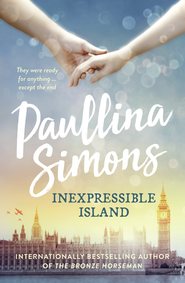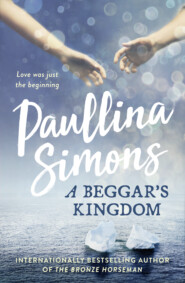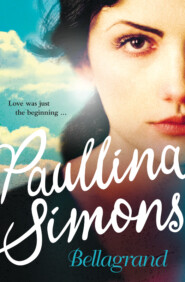По всем вопросам обращайтесь на: info@litportal.ru
(©) 2003-2024.
✖
The Tiger Catcher
Автор
Год написания книги
2019
Настройки чтения
Размер шрифта
Высота строк
Поля
Julian and Ashton flew to New York from L.A. with their girlfriends Gwen and Riley to see the star-studded adaptation of Tom Stoppard’s The Invention of Love off Broadway. The play—with Nicole Kidman in the starring role!—about the life and death of British poet A.E. Housman, originally written for men, had been reimagined and restaged with all women, except for the part of Moses Jackson, Housman’s objet d’amour, which was played by some male newcomer, who was “ominous like a powder keg,” the New York Times had reverentially written.
At first, when Gwen had suggested going, Julian balked. He knew something about The Invention of Love. His unfinished masters, a papercut inside him, included Stoppard’s play as part of the assignment.
“Oh, you think you know something about everything, Jules,” Gwen said. She was always dragging him to cultural things. “But you don’t know about this. Trust me. It’s going to be fantastic.”
“Gwen, if we’re going all the way to New York, why don’t we see La Traviata at Lincoln Center instead?” Julian said. He wasn’t particularly a friend of the opera, but Placido Domingo was Armand. That was worth a cross-country trip.
“Did you not hear when I said Nicole Kidman is A.E. Housman? And Kyra Sedgwick is her sidekick!”
“I heard, I heard,” Julian said. “Is Ashton going to agree to this?”
“He will if you will. And what, you think Ashton would rather see Placido? Ha. We have to expand his horizons. And clearly not just his. Come on, Jules, don’t sulk, it’ll be fun. I promise.” Gwen smiled toothily as if her promises were stone-carved.
They made a weekend out of it. Ashton hung up his favorite sign on the door of his store: GONE FISHING (though he didn’t fish). The four of them like the musketeers often traveled together, spent weekends down in Cabo or up in Napa. They flew into JFK on Friday, had dinner at La Bernardin, where Ashton knew the owner (of course he did), and they got to eat for free. Afterward, they met up with a few friends from UCLA, went drinking in Soho and dancing in Harlem.
Hungover and slow, they spent Saturday afternoon at MOMA, did some window shopping on Fifth Avenue. When Saturday night rolled around, Julian was almost too tired to go out again. He had bought a fascinating little book at the MOMA gift store, The Oracle Book: Answers to Life’s Questions, and would have liked to order room service and leaf through it—looking for answers as the book suggested. He had opened it randomly to two provocative replies, answers to questions he wasn’t asking.
One: You’ve drawn the seven of cups. Is this what you really want?
What was this referring to in that sentence?
And two: A solar eclipse hints of an unexpected ending.
What ending was he expecting?
Dressed for a Saturday night on the town—the men in dark jeans, fitted shirts, and structured blazers; the girls made up and blown out, in high heels and open necklines—they had pre-theatre sushi at Nobu in TriBeCa, all but Riley because it was B day and Riley didn’t eat on B days, and cabbed it to the Cherry Lane Theatre in Greenwich Village.
And wouldn’t you know it, Nicole Kidman had an understudy!
The sign on the board read: “Tonight, the part of A.E. Housman will be played by Ms. Kidman’s understudy, Josephine Collins.”
A loud unhappy hullaballoo rippled through the ticketholders. It was a Saturday night! Why would the star of the show be out without a word? “Did she fall down the stairs? Did she catch a contagious disease?” Gwen asked. No one knew. The box office was mum. The social media was quiet. Since the only name above the title of the play on the marquee was Tom Stoppard’s, refunds were out of the question.
Julian thought his girlfriend was going to have a polar icecap meltdown right on the pavement. Gwen was upset at the poor woman at the ticket window, as if Nicole’s absence was the woman’s fault. “But why is she out?” Gwen kept repeating. “Can’t you tell me? Why?”
Julian tried to make it better. Giving Gwen a small commiserating pat as they took their seats, he said, “Josephine Collins is a good stage name, don’t you think?”
Gwen glared at him. “You never say anything to actually make me feel better when I’m upset,” she said. “Like you don’t even care.”
Julian glanced at Ashton on his right. His friend was chatting with Riley, chuckling over some private joke, their blond heads together.
He tried again. “You did amazing, Gwen, really. These seats are incredible.” And they were. Third row center.
“Oh yes, they’re excellent,” Gwen said. “All the better to see the understudy from.”
Ashton elbowed him. “I keep telling you, Jules, in some situations, it’s best to shut the hell up. This most definitely is one of them.”
Julian stared straight ahead. After an interminable minute, the red curtain rose.
The understudy stood center stage in the footlights.
“I’m dead, then. Good,” she said to him, and swiveled her hips.
A slouching, heavy-lidded Julian sat up in his seat.
The play may have been fine. It may have been terrible. Gwen spent the moments during applause and the intermission in a ceaseless harangue against the understudy, so it was hard for Julian to form a coherent opinion about the play.
But he formed an opinion about the understudy.
The accidental girl was in front of Julian for over two unsuppressed hours.
She was remarkable. Though she was young and played an old man looking back on his life and finding it wanting, she brought melancholy and elegance to the stage, she brought wit and pain and outrage. She brought it all. Everything she had was left on the stage in front of Julian.
She might not have been as tall as Nicole Kidman, but she was just as sinewy, all long limbs and whiteout skin and bleached-out features. Unlike Nicole, she had brown eyes and a whisper of a breathy voice. She sounded like a teenager but with an earthy grownup exhale at the end of each sentence. The juxtaposition of her feminine self, sauntering about, playing a gruff professor had a powerful effect on Julian. The sturdy Housman verse coming from her barely audible, husky throat seduced him. Her swiveling hips seduced him. Love is but ice in the hands of children, she murmured in her impeccable British accent, standing on the banks of the River Styx, stretching out her slender arms to him. He fought the urge to leap up in his seat. How many tomorrows would the gods give me? she kept asking. How much time do I have? she cried.
And then, stepping out of Housman and into Chekhov, she said this from The Three Sisters:
Oh, where is it, where has it all gone, my past, when I was young? When I dreamed and thought with grace, when my present and my future were lighted up with hope? Why is it that when we have barely begun to live, we grow dull, gray, uninteresting, lazy, indifferent, useless, unhappy. The adults relieve the monotony of their days with gossip and vodka. Where is the artist, the scholar, the saint, where is the one who is not like all the others, who inspires envy, or passionate desire? What do you want, Julian? WHAT DO YOU WANT?
His mouth dropped open. Did he mishear? The Oracle Book was speaking to him out loud. Bewildered, he leaned forward. Ashton nudged him to sit back. Did the girl just call out to him by name?
“It was ghastly, wasn’t it?” Gwen said when it was over. “How pretentious was she? Oh, she thought she was all that. How in the world did she land such a complex role? Banging the producer, most likely, don’t you think?”
“How would I know?” Julian said. “Why are you asking me? I know nothing about her.” Was she really British? Surely you couldn’t fake an accent like that.
“Why are you getting defensive?” Gwen sighed, taking his limp hand. “I’m sorry, okay? You were right. We should’ve seen La Traviata. But honestly, what did you think? Ghastly, wasn’t it?”
That wasn’t quite what Julian thought.
Gwen wanted to stage door for Kyra Sedgwick’s autograph. “So the evening is not a total waste.” They squeezed in by the blue guardrail. “After this, we’re walking straight to Art Bar,” Gwen said. “First round’s on me. We will drink to forget.”
“There isn’t enough alcohol in all of New York,” Riley chimed in. “I also didn’t care for her, Gwennie. She rubbed me the wrong way, though I can’t quite put my finger on why.”
“What do you think, Jules?” Ashton said. “Is there enough alcohol in all of New York for you to forget her?”
“I shouldn’t think so.”
Ashton was teasing but not smiling. Julian turned his gaze to the backlit pink posterboard by the stage door.
“She grated on me,” Gwen continued to say to Riley. “It’s fine to bring something new to a role. But it can’t be a total departure.”
“She was a woman playing a man, how much more of a departure can there be?” Julian asked.
“She wasn’t manly enough. Did you hear her voice?”
“I heard her,” said Julian.
“I could barely. Plus she wasn’t tall enough. It was so distracting.”











